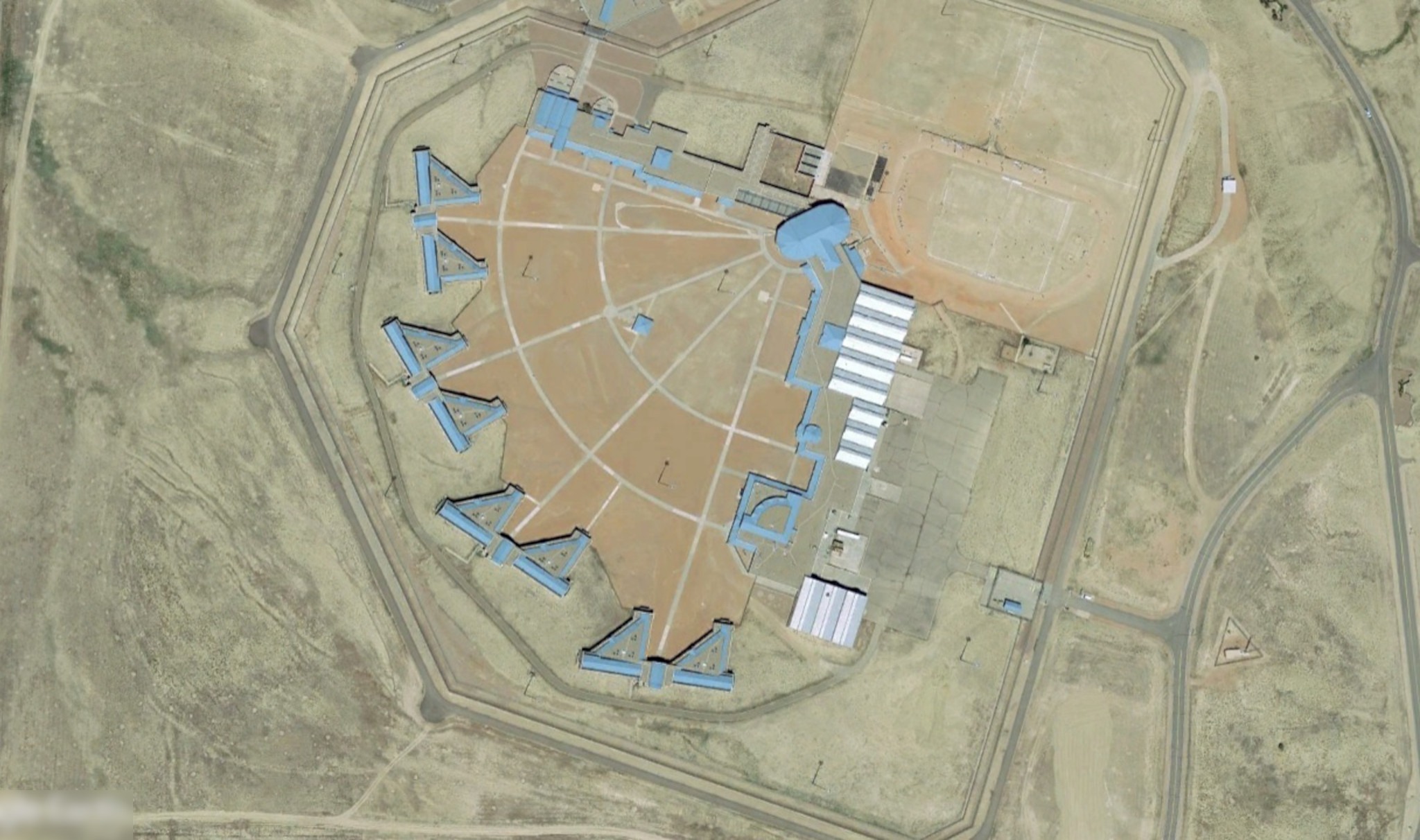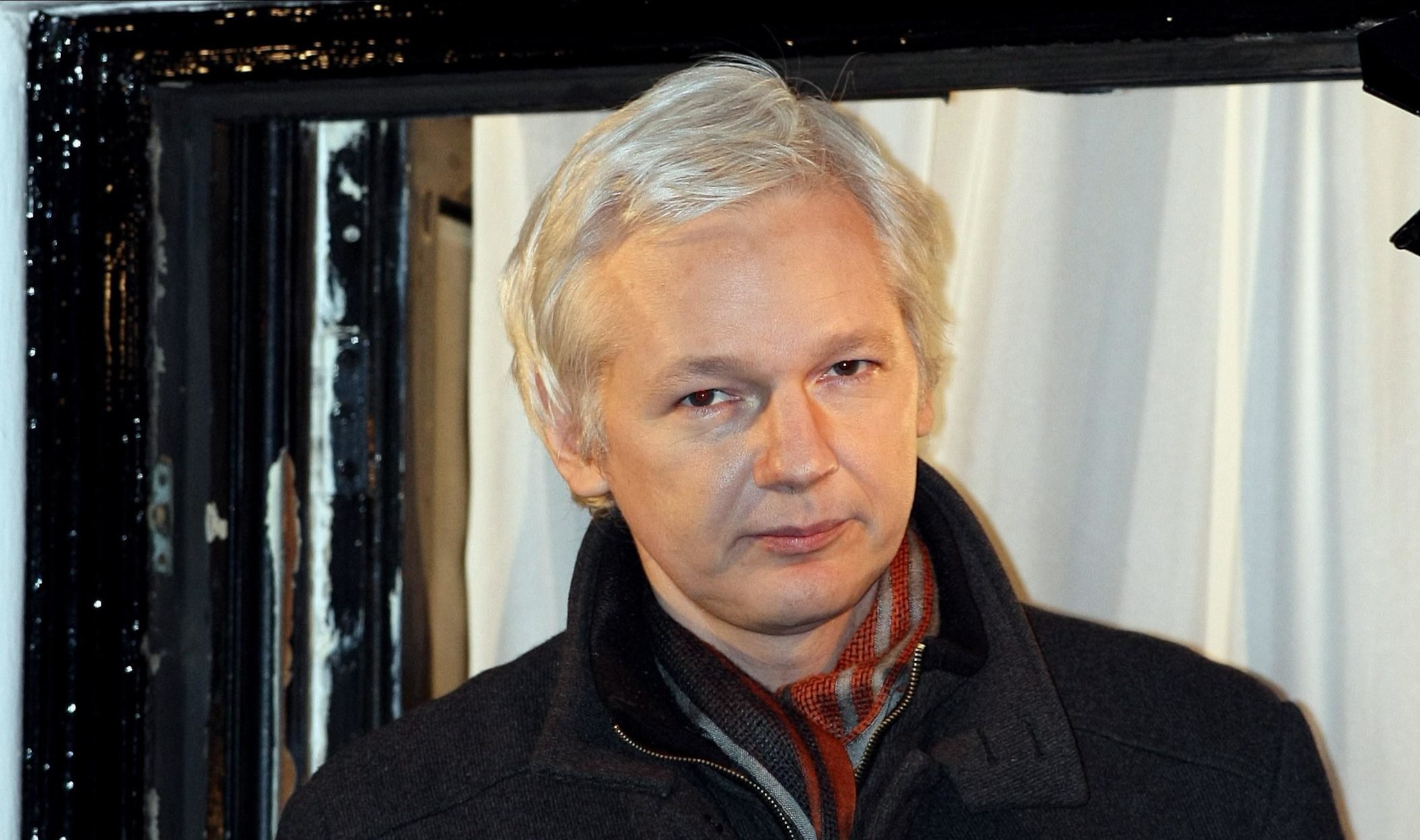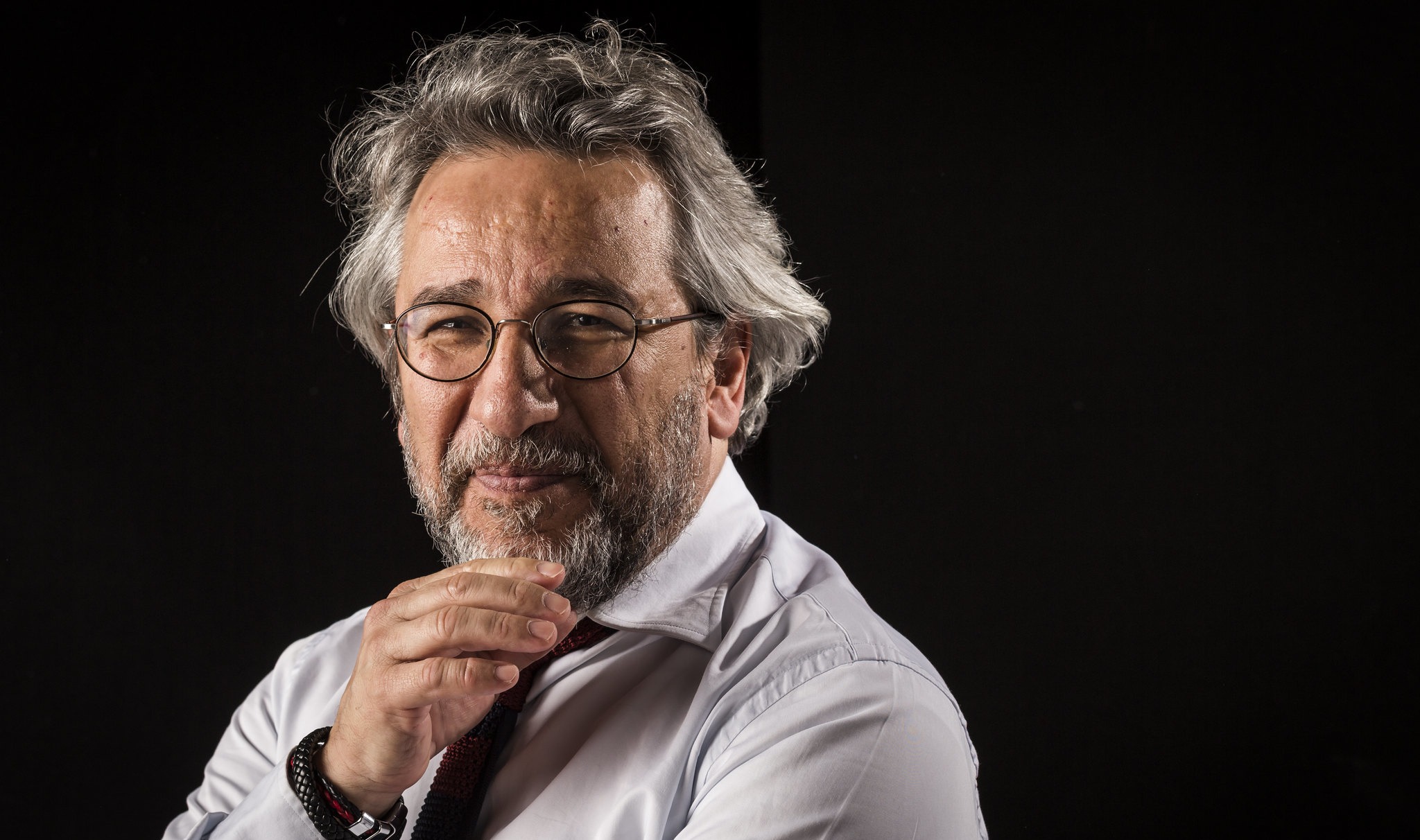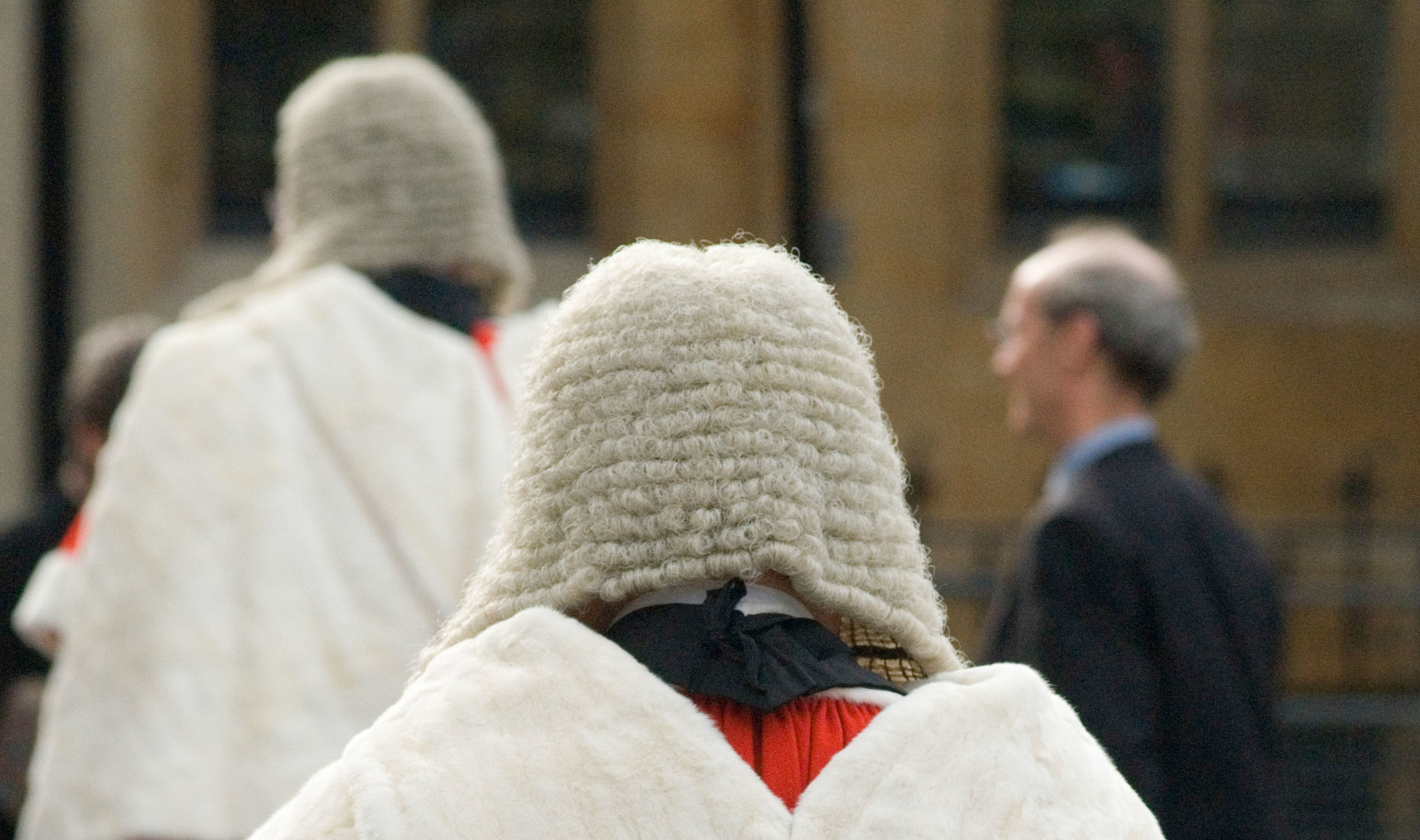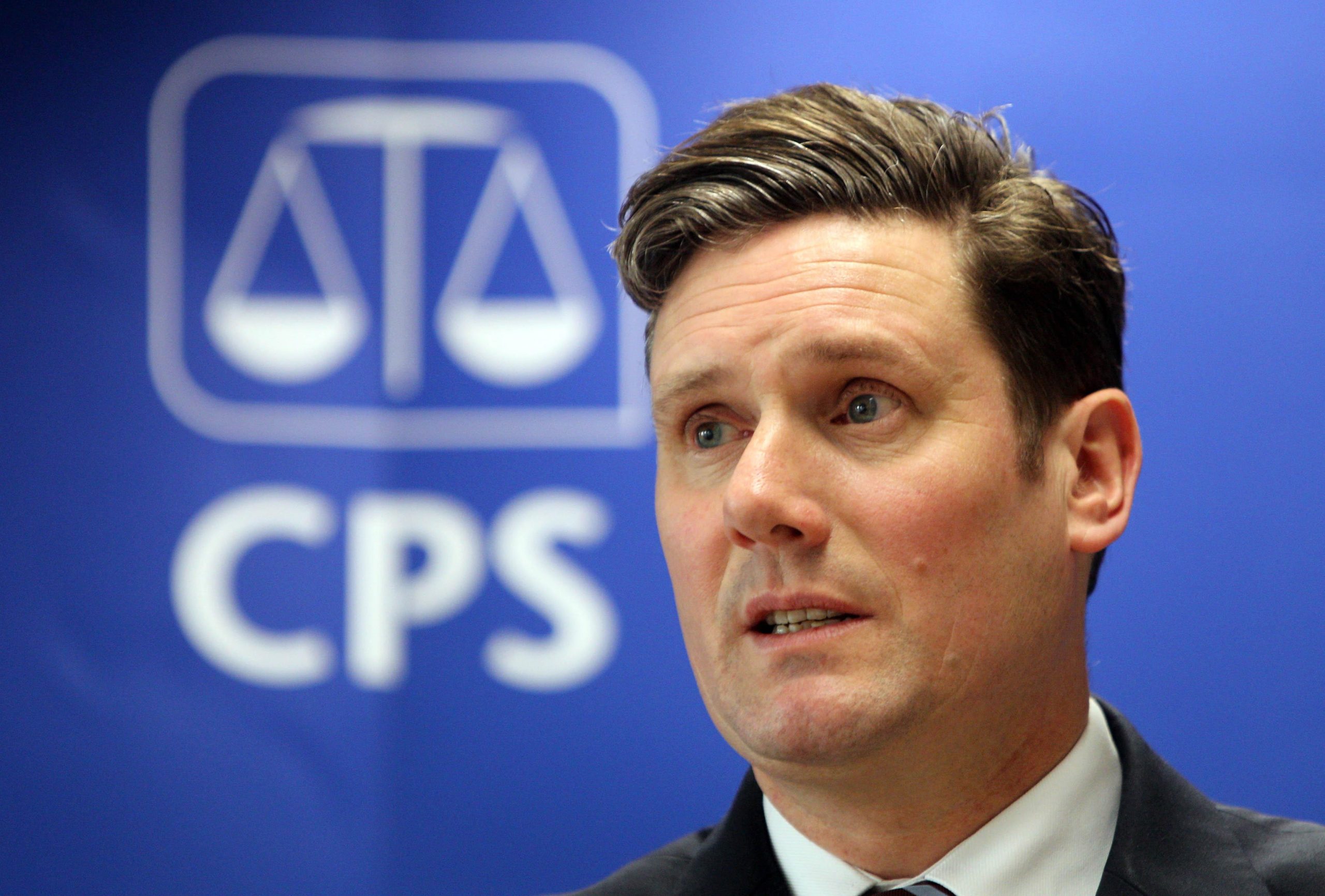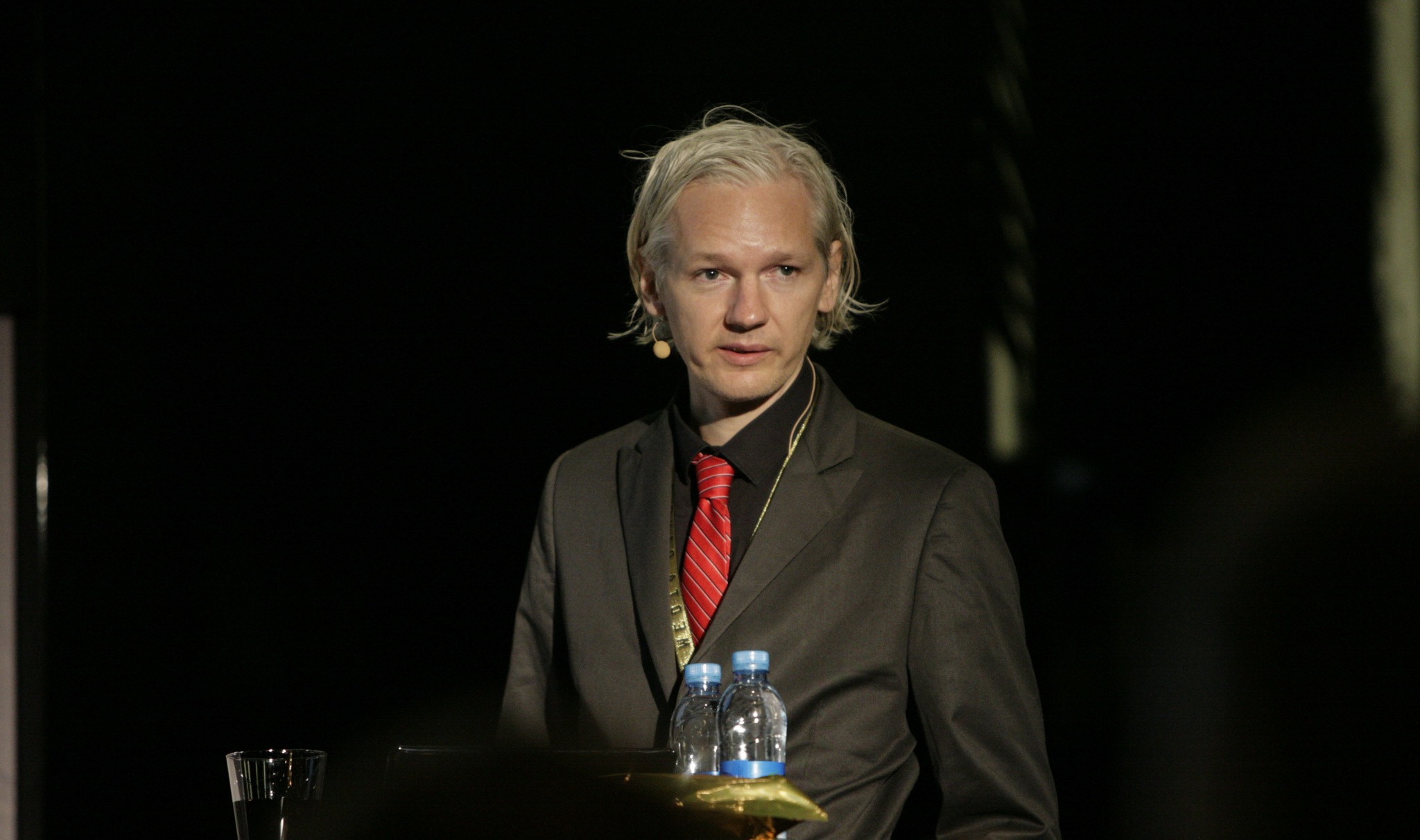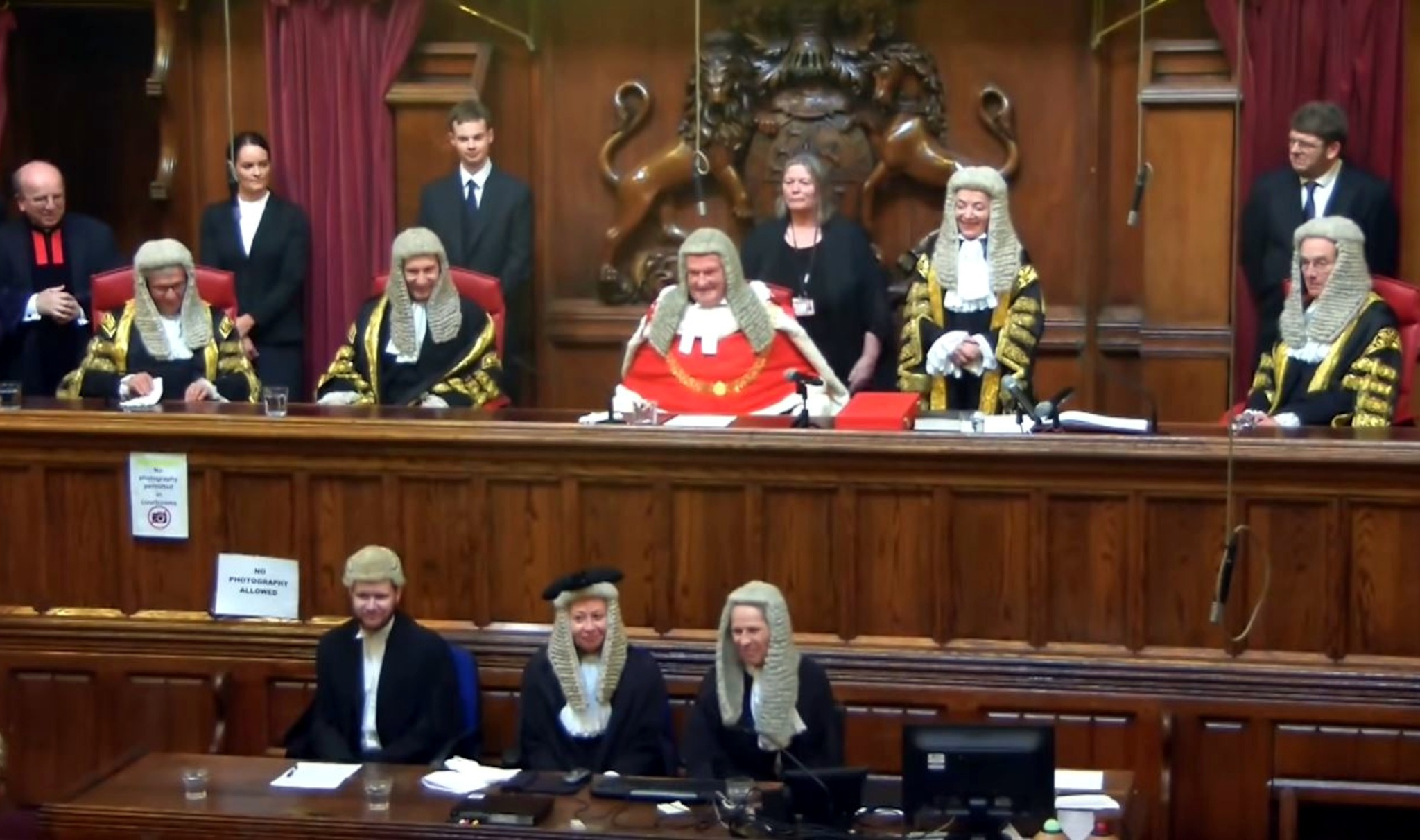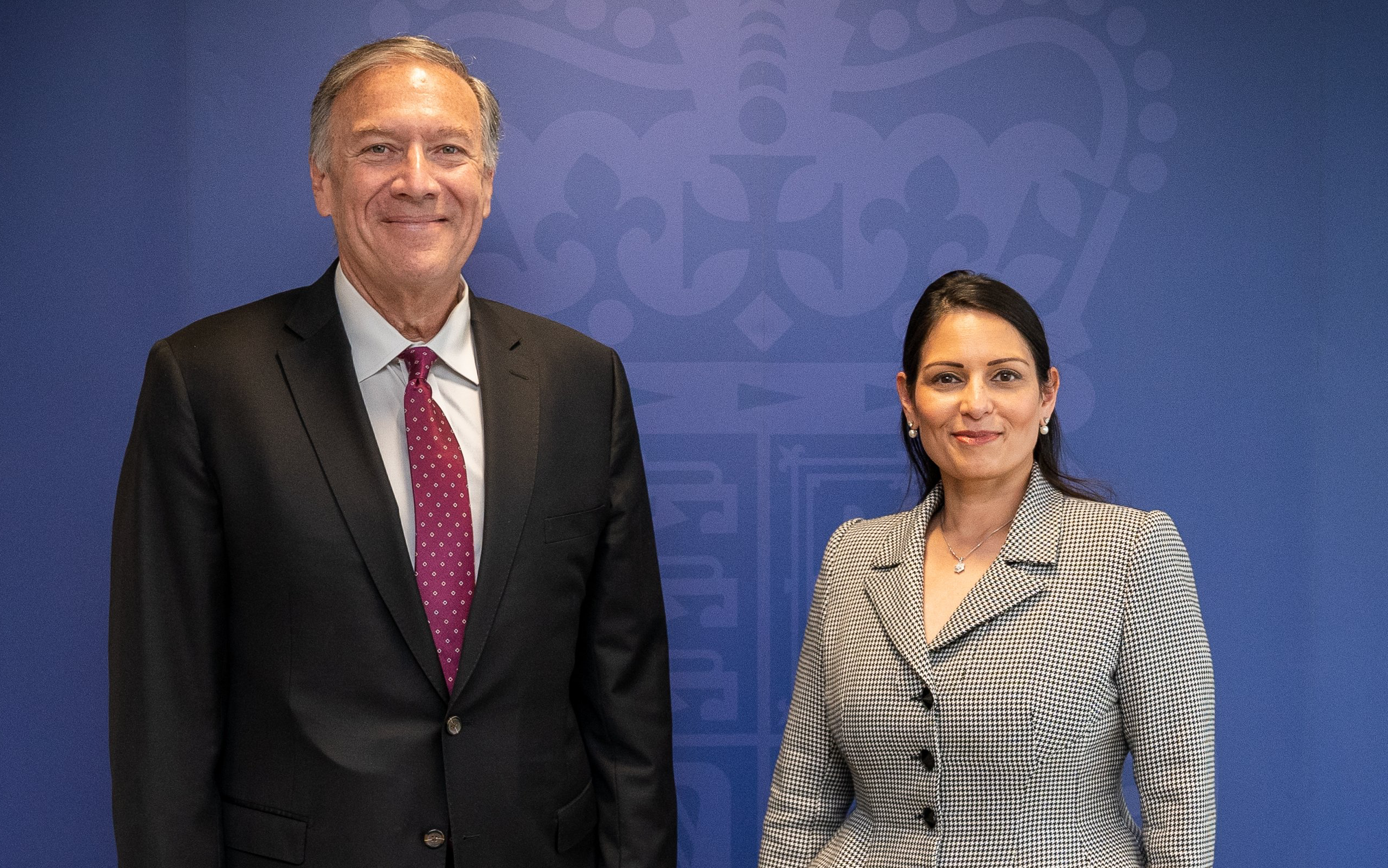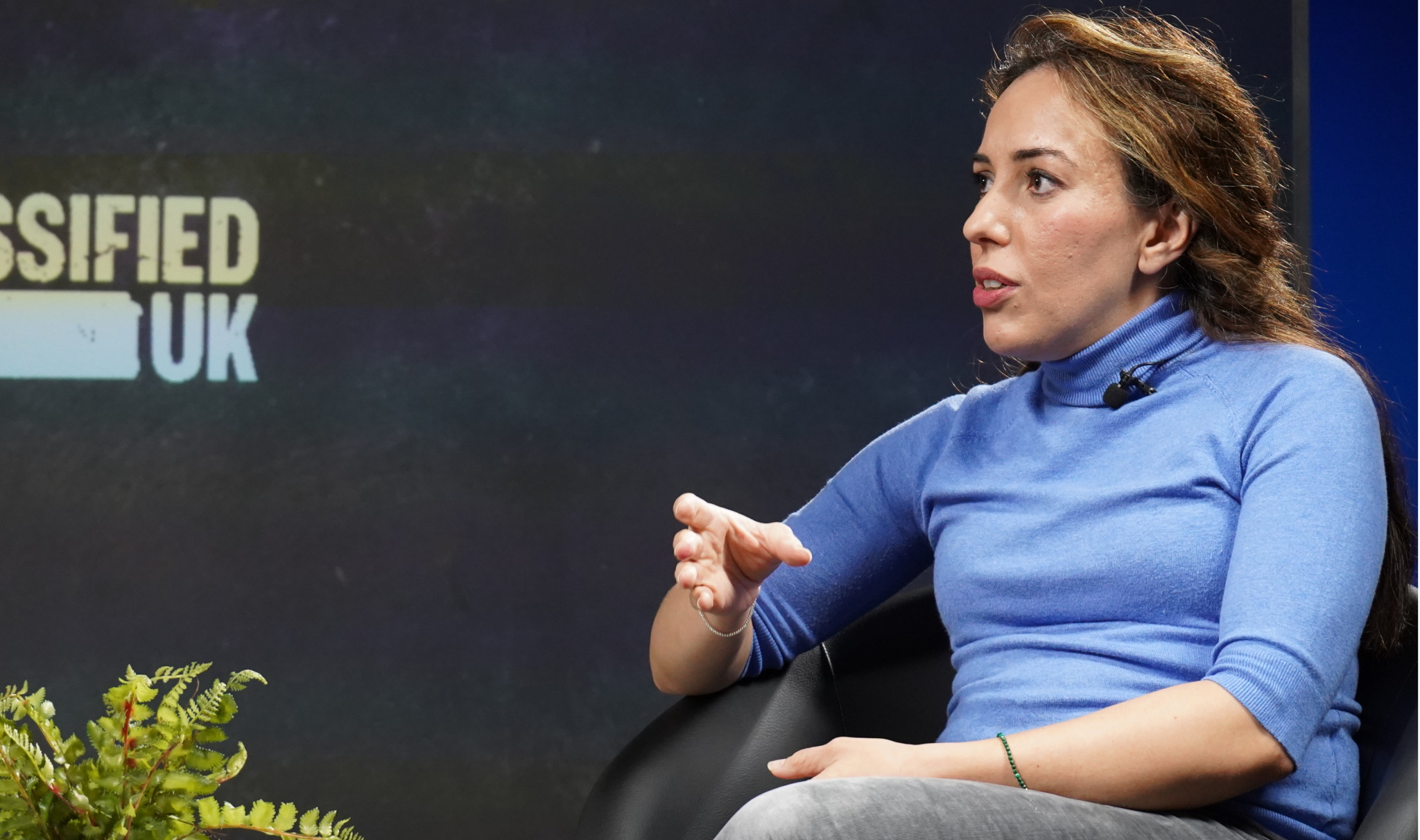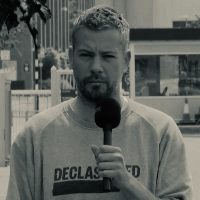Babar Ahmad was extradited from Britain to the United States in 2012 on charges of providing material support to terrorism because of two articles published on his website backing the Taliban government in Afghanistan.
He spent eight years fighting the extradition, but when it eventually happened he flew across the Atlantic on an executive jet from RAF Mildenhall in Suffolk. He had no idea what was coming next.
“I think it was, like, a twelve seater plane,” Ahmad tells me. “Three sections of four seats. So there’s two big seats facing each other. Big, square, comfortable leather seats.”
Outside it was pitch black.
“They kept asking, ‘do you need anything? Do you want a glass of water?’ I said, ‘can I have something to read?’”
The US official gave him a newsletter for public workers. “I’m just looking at the baseball result from Connecticut or something.”
Sitting on the plane, there was no chit-chat, but at some point they asked him if he was hungry. Ahmad said he was.
“So they came and they gave me this MRE pack: meals ready to eat. A big pack. They undid one of the cuffs on my right hand just so that I could eat.”
“His job is to do the small talk, to try and get information out of you.”
While he was eating, a homeland security official came and he sat down opposite him. “His job is to do the small talk, to try and get information out of you, and to get you to give some sort of confession, which then later he files as a statement to use against you,” Ahmad says.
“I did all the small talk and whenever anything would come up related to the case, I’d just say ‘look, I’m sorry, I can’t talk about that’”.
Ahmad says the official was using the ‘good cop’ technique. “He was trying to make a connection, talking about childhood, which is just normal conversation, like two strangers just having a normal chat. They do that to make you comfortable. But the underlying reason is obviously not to chit-chat, it’s to build a connection so that you will open up and you’ll be able to answer their questions.”
The US official told Ahmad he had been investigating him for 11 years and made 30 trips to the UK for that purpose.
“Then he told me he had been in Britain for five days waiting for my court case to finish. ‘I even missed the new episode of Homeland,’ he said, ‘because I was going through that. You made me miss it.’ Half joke, half serious.”
Ahmad says at some point he grew tired and said he wanted to lie down.
“They let me lie down on the floor, but it was hard,” he says. “I don’t think I slept. It was really hard to get comfortable because you can’t stretch out and you’re in these shackles. So whichever way I tried, it wasn’t possible.”
Assurances
Someone who may soon be in Ahmad’s shoes, shackled and on a plane to the US, is Australian journalist Julian Assange.
In January 2021, district judge Vanessa Baraitser blocked the extradition from the UK saying that such a move would be “oppressive” because of the WikiLeaks founder’s mental health.
The US was given a chance to appeal and Baraitser’s decision was then overturned by Chief Justice Ian Burnett, who accepted US assurances about Assange’s treatment. That judge was a 40-year “good friend” of the British minister who orchestrated Assange’s seizure in April 2019.
“It’s basically extradition by diplomacy without proper oversight at the courts.”
Jennifer Robinson, Assange’s lawyer in Britain since his legal troubles began, told me: “The US did not dispute the medical findings, so the medical conclusion and evidence still remains the same, which is, if he’s extradited to isolating conditions, he will be caused to commit suicide.”
The US, however, offered “assurances” that they would not place him under those kinds of prison conditions.
“It’s a conditional assurance,” Robinson says, “which means at any point, once he’s in US prison, the intelligence services could decide that he’s done something that justifies the application of those prison conditions.”
This is hugely worrying, she adds. “You’ve got agencies which tried to kidnap and kill him that would have the power to put him under those kinds of isolating conditions without any real ability of us to judicially review it. And he would be stuck in those conditions.”
The US assurances came after the close of proceedings, but the court in London accepted them and waved them through.
“It’s basically extradition by diplomacy without proper oversight at the courts,” Robinson says.
In the US
Ahmad touched down in the US early in the morning of 6 October 2012. At the time he had no idea where he had landed.
“I went into some sort of car and we drove. After about 20 minutes we stopped and got out,” he says.
“I could hear, like, clanging and I realised I’m in some sort of warehouse or prison-type place. At that point, I realised how painful it was to walk with shackles. It was chafing the back of my achilles, so I really slowed down. Obviously later on you learn how to do it, but that was my first time, and I didn’t know. I really slowly, slowly, slowly shuffled.”
“I realised how painful it was to walk with shackles. It was chafing the back of my achilles.”
Ahmad then went up in a lift and came to a cell. They took off his handcuffs and the shackles, and then removed the ski mask and ear defenders which they had put on him upon landing. Ahmad was in New Haven federal courthouse. It was about three in the morning.
“They took us for photographs and fingerprints, and then they put us back in that cell. They said, ‘you have a court hearing at 8am’”, he says.
Ahmad couldn’t sleep for the second night in a row. “Around 7.30am my lawyers came to see me in a closed visit, so there’s a glass screen, and my lawyers are there. I spoke to my lawyers, then there was a hearing that took place.”
After that hearing, now around 10am, he was put in an SUV.
“We set off in this convoy of maybe eight SUVs,” he says. “And these guys, you know how Americans are, when they do something, it’s always extra. The guys have, like, submachine guns. These all look like special forces.”
The supermax
After an hour they reached a prison. Ahmad’s lawyer told him he was going to the state supermax in Connecticut.
Once inside the reception area of the prison, he was taken for a medical examination. The officers were made to wait outside.
“I go into this room and there’s three nurses there,” Ahmad says.
“Normal, friendly conversation, going through my medical history, check my eyes, ears, mouth, whatever. Then as the officer came to get me, he looked at the head nurse and he sort of, like, winked or nodded at her, and she nodded back. She goes, ‘yeah, status’.
“One person was filming and eight guys were shouting commands and orders in unison.”
“I didn’t know what that meant, but later I understood that she was telling him to put me on the suicide watch, which is basically a punishment cell. Healthcare has to make that decision. So that was a scam because there was no reason for me to go there, I was completely compliant. She looked at the guy and said, ‘status’”.
Ahmad continues: “Then I’m taken into this cell. As soon as I got in there, one person was filming and eight guys were shouting commands and orders in unison. ‘Okay, left. Okay, restraint’. They’re shouting these military orders and they put me against this wall and they literally stripped me naked, completely. And this is all on video.”
Ahmad, who had not slept, was in complete shock.
“In the UK, you’re never stripped fully naked,” he says. “They’ll either do the bottom half or the top half, and they don’t actually do it forcibly unless it’s a security thing. So I’m like, ‘what the hell?’”
Paper slippers
Then they put paper slippers on Ahmad and an anti-suicide smock which covered his torso down to his knees. “And that’s it. That’s all I have, apart from the shackles.”
They walked him down a long corridor bent over under restraint so his head was below his waist.
“They dumped me in this cell, and the first thing I noticed was the smell, it was like a faeces infested smell, it was also absolutely freezing,” he says. “I remember the first thing I asked the status guy, ‘can I get something to eat?’ He just chuckled and said ‘you’ll be fed’. And that’s it. They shut the door and that’s it. They were gone.”
There was nothing in the cell except two strips of toilet paper. The water was 60 seconds on, five minutes off, Ahmad remembers.
“If I looked outside the small 3×6 inch strip window, on the back wall, I can just see concrete.”
“If I looked outside the small 3×6 inch strip window, on the back wall, I can just see concrete. There’s no view, there’s nothing there. Then there’s another strip window, 3×6 inches on the door facing the inside of the prison unit. And there’s just all these mirrors there and there’s a little clock that I can make out.”
Ahmad was tired now and there was a bed with a plastic mattress. “I curl up like a foetus because it’s absolutely freezing,” Ahmad says. “I slept a bit and got up. At some point it was food time, and they came and they gave me a paper bag of food. The food was in, like, a coffee cup, and I asked the guy, ‘can I get a spoon?’”
The officer told him it was not allowed.
“I had to eat with my hand like an animal. And that’s all because of the status thing, it’s the punishment thing. You have to eat like that. I didn’t know what the food was. I just ate it. Part of me was thinking, is this meat or not? I don’t eat meat that’s not halal. But I just ate it. I didn’t even know they might have spat in it or whatever, but I was just too hungry. And the cell stank like faeces, and I’m barefoot and, of course, there’s no soap.”
Unknown unknowns
Ahmad at this point had no idea how long he would be in this cell. It could be 10 days. It could be 10 years. “I had no idea about anything,” he says.
“I’m in this cell, and then the first thing I remember is one thing that Nelson Mandela said: that years pass like minutes in prison, but the minutes, they pass like years. And I remember I kept going to the door and looking at that digital clock. And I’m thinking that it’s been, like, several hours, but it’s been like 10 minutes.”
At some point a mental health nurse passed by his cell.
“She stood for a moment reading something outside my cell and looking at me with disgust as she did it,” Ahmad says. “I later realised that there was a sheet of paper outside my door which listed all the accusations against me. Then I asked her how I could cope, given I had nothing in my cell, nothing to do or read, nothing to see and nobody to talk to. ‘You could try visualisation,’ she chuckled then went on her way. That was what they meant by mental health support.”
The next morning a new prison official came to his cell.
“He was a racist and hostile officer,” Ahmad tells me. “He was shouting, ‘you’re the terrorist’, and he’s shouting really loudly to the other prisoners ‘he tried to blow us up, he tried to kill Americans’. Then he goes, ‘I’m going to teach him a lesson, why did you try to blow us up?’”
“I was just standing there and all of a sudden it’s like my chest started caving in on me.”
Ahmad tried to explain to him that that was a different person, not him.
“He’s like ‘yeah, yeah, whatever, speak English’. He was openly racist. In the UK, they tend to hide their racism, but in America you know where you stand, which I actually prefer.”
A day after arriving in the prison, Ahmad had a panic attack.
“That’s the only time in my life that I’ve had one,” he says. “That was the first and last time that I’ve had it happen to me. I was just standing there and all of a sudden it’s like my chest started caving in on me. I’m standing up and then I start hyperventilating and my muscles tense up, and I go into this state, it’s sort of like I’m drowning, but I’m not.”
He says the only reason he is able to talk about it now is because he’s had eye movement desensitisation and reprocessing (EMDR) therapy to resolve it.
“I can talk to you now without any physiological response,” Ahmad says. “But it was terrifying. I think it was the realisation dawning on me that, ‘oh, my God, this is it’”.
He continues: “All these assurances, I’m going to be treated humanely, and the US prisons are equal to UK prisons and he’ll be treated fairly and justly. All of it was complete rubbish. It was all a scam, it was all lies. I was just thinking to myself ‘this is it’. I’m going to stay in this cell for the rest of my life.”
Ahmad had no idea how to deal with the panic attack.
“There was no one there. I couldn’t speak to anyone. I didn’t even know about how to deal with the breathing. Breathing can get you out of it. So I just started reciting some verses from the Quran that I’d memorised and then eventually that sort of just got me out there, calmed me down.”
CIA and policy
John Kiriakou was a CIA officer from 1990 to 2004 before leaving and blowing the whistle on the agency’s torture programme during the so-called War on Terror. Kiriakou has since become an outspoken advocate for Julian Assange’s battle for his life in the face of persecution by his former employer.
“One of the things that many people don’t understand is, in the American system, even if the prosecution wants to drop the case, what they do first is they consult the ‘victim’ to see if it’s okay with the victim if the case is dropped. In this case, the victim would be the CIA,” he tells me.
“I can’t help but to think that had the Vault 7 release not taken place, and with [former CIA director Mike] Pompeo out of the picture, I don’t think anybody would have really cared if the case against Julian were to be dropped, but he embarrassed them, and there’s such a deep desire for revenge that it’s as though they can’t control themselves.”
Vault 7 is a series of documents that WikiLeaks began to publish in March 2017, detailing the capabilities of the CIA to perform electronic surveillance and cyber warfare. Kiriakou says that senior levels of the CIA will be guiding executive policy on the Assange persecution as a result.
“I don’t think that these decisions are made in a vacuum at the Justice Department.”
“In a case like this, that conversation would only happen at the very top,” he says. “So we’re talking about the director, the deputy director, the deputy director for operations, the general counsel, maybe the deputy director for counterintelligence. It’s a very small group of people that would be having that conversation.”
The CIA is incredibly powerful, Kiriakou adds. “It’s especially powerful within the federal bureaucracy. I don’t think that these decisions are made in a vacuum at the Justice Department. These decisions are made around a conference room table at the National Security Council. And we cannot pretend that [Attorney General] Merrick Garland is independent and the Justice Department is independent of outside influence. We know that that’s just simply not true.”
When President Joe Biden appointed Bill Burns his CIA director, Kiriakou had allowed himself some hope for Assange.
“I was optimistic about Bill Burns because he’s a career diplomat and a peacemaker, and with the exception of the time that he spent as the deputy secretary of state, he was not a regular consumer of intelligence, so there was no bond between Bill Burns and the intelligence community,” Kiriakou tells me.
“I thought, well, you know, for the first time, really, since Admiral Stansfield Turner was the director under Jimmy Carter, this is a guy who’s independent of the CIA, who’s able to make his own judgments and come to his own conclusions. You know, I fear that, at least in the Assange case, that just turned out to not be true because if Bill Burns were to go to Merrick Garland and say, look, there was no damage to national security, I think Garland would have no problem dropping the case.”
Kiriakou says he cannot believe Biden wants to take on the press establishment.
“It just seems to me that there are very powerful people, probably at both the CIA and the Justice Department, who say, you know, fuck the constitution’s first amendment.”
The legal stitch up
Kiriakou is also not optimistic about Assange’s chances in the US legal system.
“Initially, what’s going to happen is he’ll be taken to what’s called the federal lockup at Alexandria, Virginia,” he says. “It’s used to house prisoners awaiting trial in the eastern district of Virginia in the federal court there. There are people awaiting trial for crimes as minor as trying to give a blowjob to an undercover police officer at a national monument, someone I shared a cell with briefly had done that, but that goes to El Chapo and everybody in between.”
While he’s awaiting trial, he’s likely going to be treated like everybody else, Kiriakou says.
“One important thing here is that American prosecutors have repeatedly promised the British government that they will not put Julian in solitary confinement. That is complete and total bullshit, because it is not up to the Justice Department’s prosecutors to decide who goes to solitary confinement. That is the sole realm of the Federal Bureau of Prisons. The prosecutors promising not to put Julian in solitary are like you or I promising not to put Julian in solitary. That’s about how much weight those promises carry.”
“They charge everybody in the eastern district of Virginia because it’s the home district of the CIA.”
Assange will not get justice in the US either, Kiriakou says.
“I don’t think he has a chance at a fair trial for a couple of reasons,” he says.
“Number one is the fact that this is the eastern district of Virginia. It’s called the espionage court because no national security defendant has ever won a case there. I was charged there. [CIA whistleblower] Jeffrey Sterling was charged there. Edward Snowden has been charged there. They charge everybody in the eastern district of Virginia, almost everybody, because it’s the home district of the CIA.”
He continues: “The jury is going to be made up of people who work for or who have relatives who work for the CIA, the Pentagon, the Department of Homeland Security, the FBI, and dozens of intelligence community contractors. So it’s impossible to get a jury that’s not biased.”
The second reason is what is called “charge stacking”, Kiriakou says. “Let’s say maybe you have committed a crime. Instead of charging you for that crime, they’ll charge you for 20 crimes, and then they’ll come back to you after you’ve been suitably softened up and say, okay, we’ll drop all the charges but one or two, if you take a guilty plea.”
The tricks
Babar Ahmad stayed in the punishment cell for three days after his panic attack. Then a doctor came to examine him. “It was an African American doctor, and he just kept shaking his head,” Ahmad says. “He said to me, ‘I don’t know why they put you in here’, and he said he was going to get me out. He just kept shaking his head. He knew the tricks that they play.”
The doctor did get Ahmad out into another cell with a few more things, including a few jumpsuits and t-shirts, some towels and a blanket. But it was still solitary confinement.
“But this one prisoner, who was actually a decent guy, reached out to me,” Ahmad says. “I didn’t know what he looked like, but he just shouted out my cell number. He goes, ‘hey, 109, how are you doing, brother? What’s your name, where do you come from?’”
He gave Ahmad some information about the routine at the prison and eventually managed to send him some reading material, which was against the rules.
“He sent me some books. I think I got a Bible from the chaplain as well. I read the Bible cover to cover. Most of it was in those initial weeks.”
Ahmad stayed in that prison for two years.
“Exercise was in an underground dog cage, which is about four steps by two steps.”
“I was held alongside Connecticut’s death row,” he says. “The regime there was very tough. Complete solitary confinement for the whole day and night. No association with any other prisoner for two years. A full humiliating strip search, including body cavities, every time you leave your cell, even if it’s to the shower two metres away.”
He got to do one hour of exercise three times a week.
“It was in an underground dog cage, which is about four steps by two steps, and there’s three cages side by side,” he says. “So you can talk to prisoners who are either the other two prisoners that are there with you, you can talk to them without restriction. But that was it.”
I ask Ahmad how he didn’t lose his mind.
“Well, it is unbearable. And a lot of people have lost their minds, and there are a lot of people with severe mental health problems, people that talk to themselves, people that shout and bang all day, all night long. People self harm. There are suicide attempts all the time. One week I witnessed three suicide attempts in one day.”
He continues: “Then there are prisoners there who had killed their cellmates, battered them to death inside the actual cell. In my case, I think it was partly my religion, my faith. I don’t know, they have these buzzwords, resilience and all of that, but you just try your best to survive, isn’t it?”
Ahmad was released from US prison in July 2015 after being sentenced to 12-and-a-half years for providing material support, via two articles published on his website, to the Taliban government at a time when they were harbouring Osama bin Laden.
The US government had asked for twice this sentence, but the surprisingly lenient sentence meant Ahmad was freed within months because of time served.
Julian Assange is unlikely to get such leniency from the US justice system, and his prison experience will likely be even more punitive than Ahmad’s.
“I think Assange is going to get worse than me in American prison,” Ahmad says. “The assurances they give about access to health care, it’s all a scam. None of it applies once you’re there.” He pauses. “Of course, suicide is a very real risk.”

